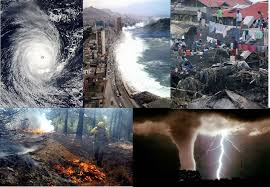Remote Work Corona Virus & Climate Change – Americans Considering Moving from Cities to the Country
Migration/Relocation
Some aspects of climate change in the future are so challenging that the only real option is for people to migrate or relocate. One recent study figured there will be as many as 200 million climate-related migrants on the move in search of livable conditions by 2050. There are several different climate-related changes that may trigger migrations and relocations, but the main reasons have to do with rising sea level and reduction in surface water availability for agriculture and basic living.
Some of the largest cities in the U.S. have reported large numbers of people moving away for more rural portions of the country in 2020. Being alone in a small apartment for months on end due to the enduring pandemic has been proven as too tiresome for many.
those who haven’t been able to escape urban crowds this year are at times undoubtedly yearning for greener pastures and wide-open spaces. A new Gallup survey shows how the desire to live in a rural or small-town setting has risen substantially over the past couple of years.
There is widespread agreement that climate change can result in a rise in the frequency and intensity of sudden-onset hazards, such as floods, wind-storms (hurricanes/typhoons/cyclones), mudslides, and other hydro-meteorological events.
Climatic change will also have slower onset impacts, including increases in the severity of droughts, land destruction, desertification, salinization of fresh water resources, riverbank and coastal erosion, thawing of permafrost, and sea-level rise. The results of these events and processes will, in turn, affect crop yields, food production, fresh water supplies, health, and livelihoods and thus the safety and sustainability of human settlements.
A significant amount of studies have sought to analyze and document the links between the results of climate change and migration and displacement.
There is increasing evidence that migration and dis-placement associated with disasters and other impacts of climate change is going to be substantial and will increase in years to come.13 Unlike migration and displacement, considerably less attention has been given to planned relocation made necessary by disasters and other influences of climate change.






